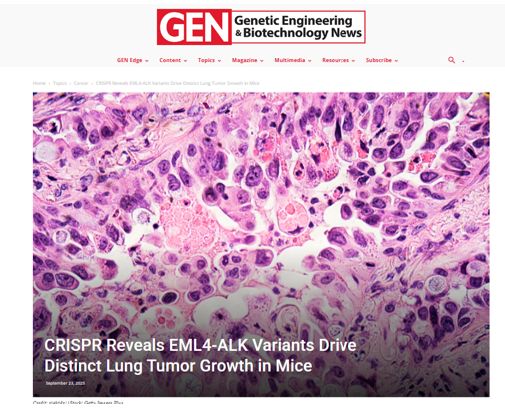Oncogene Cancer Research shared a post on LinkedIn:
“Could it be time to stop treating all ALK+ lung cancers the same?
New research in Cancer Discovery (via GEN) shows that different EML4-ALK fusion variants behave very differently. Some drive faster tumour growth, respond differently to ALK inhibitors, and interact with co-mutations in unique ways.
This suggests that knowing a patient is simply “ALK-positive” may not be enough — variant-level testing could be critical to guiding the most effective treatment.
Key takeaways:
- Using CRISPR/Cas9 in mouse models, researchers engineered the two most common variants (V1 and V3). V3-driven tumours grew faster, larger, and shortened survival compared with V1, highlighting intrinsic biological differences.
- Knocking out 29 known or suspected tumour suppressors had variant-specific effects. Some slowed V1 tumours but barely affected V3, and vice versa.
- Co-mutations mattered too: loss of PTEN altered drug responses in a variant-dependent way.
For patients, the message is clear: the details of your cancer’s biology matter. Studies like this bring us closer to care tailored not just to the driver, but to the specific variant — giving our patient community a chance at longer, better lives.

More posts featuring Oncogene Cancer Research on OncoDaily.


